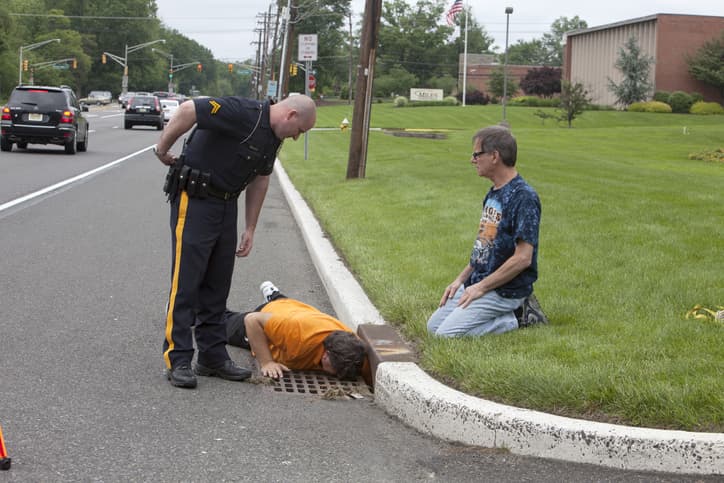What Is the Good Samaritan Law?
When there is an accident or a medical problem, it’s a good thing for people to help. This is especially critical in emergencies where every second counts. Lawmakers have created laws to encourage bystanders to render emergency care.
These laws protect bystanders from legal liability when they provide emergency care in good faith. The laws are called Good Samaritan Laws.
What are Good Samaritan Laws?

Good Samaritan Laws provide legal immunity for individuals who provide emergency care. When someone does their best to give medical aid in an emergency, they are generally not liable for civil damages. For immunity to apply, they must provide care as a reasonably prudent person would in the particular circumstance.
What states have the Good Samaritan Law?
The Good Samaritan Law exists in all 50 states. These laws have minor variations from state to state. Generally, if a person is in need, the bystander should ask permission to treat if the victim can communicate. If a victim is unconscious, a good samaritan can assist, assuming applied consent.
What is the Florida Good Samaritan Law?
Florida Revised Statutes § 768.13 is the Florida Good Samaritan Act. This Act states that any person, including medical professionals, who render aid in emergencies, whether inside or outside a hospital, doctor’s office, or other medical facility shall not be held liable for civil damages.
What does the Good Samaritan Law Protect?
The Good Samaritan Law protects people, including medical professionals, from being subject to legal liability when they are involved in emergencies. If the person helping acts within a reasonable standard of care, they are not liable for the care they provide. If the person being helped later tries to sue for negligence, the Good Samaritan Law may be a defense.
When does the Good Samaritan Law apply?
The Good Samaritan Law applies in these circumstances:
- Both medical professionals and people who are not medically trained are covered
- The person renders care in good faith
- There is an emergency or a public health emergency
- The victim does not object to treatment
- When providing care, the person acts with ordinary prudence up to the standards of a reasonable person
When applicable, the person who provides care is not legally liable for the assistance they provide or for arranging additional medical care for the victim. However, the law does not provide immunity when a person provides medical care unrelated to the emergency.
What is the purpose of Good Samaritan Laws?
Lawmakers stated that the purpose of the Good Samaritan Law is to encourage health care practitioners to provide emergency care as needed, without having to worry about litigation for doing so.
Can doctors and nurses invoke the Good Samaritan Law?
Yes. The Good Samaritan Law applies to anyone, including people licensed to practice medicine and other medical professionals. The law applies only when rendering care in an emergency. The emergency treatment may occur inside or outside a professional care setting.
Can a doctor or nurse be legally liable despite the Good Samaritan Law?
Yes. A medical professional can be legally liable when rendering emergency care. There is a legal liability in emergency situations when the professional’s actions demonstrate a reckless disregard for the consequences. Their actions must affect the life or health of another person.
The Good Samaritan Law clarifies when the emergency ends as far as medical care is concerned. At some point, if the patient is stabilized, they can be offered care as a non-emergency patient. That is when immunity ends under the Act unless they need surgery within a reasonable time after stabilization.
Is there a Florida Good Samaritan Law for animals?
Yes. The Florida Good Samaritan Law protects anyone, including veterinarians, from liability when they provide emergency care to an injured animal on or adjacent to a roadway. They must provide the care in good faith. Immunity protects them for the care they provide and for arranging for further care as long as they act as a reasonably prudent person.
Is there a Florida Good Samaritan Law for drug overdoses?
Florida Revised Statutes § 893.21 provides legal protections for people seeking medical help for a person having a drug-related overdose. The person who seeks medical assistance in good faith for a person having an overdose may not be arrested or prosecuted for certain controlled substance offenses. The evidence must be gathered from the help rendered to the person having the emergency.
See Florida law § 893.147; § 893.13; Pope v. State of Florida, Fla. Dist. Ct. App. (No. 1D17-2487, 2018)
Are there any Florida cases about the Good Samaritan Law?
Harris v Soha
Harris v. Soha – A person sought emergency care while suffering from a swollen throat and tongue. They later died. Their surviving spouse sued the doctor who responded. The doctor was an anesthesiologist assigned to work on a different floor. They were protected under Good Samaritan laws.
University of Florida Board of Trustees v. Stone
Univ. of Fla. Bd. of Trustees. v. Stone – Emergency protections include the Act of diagnosing. In addition, the patient doesn’t have to enter the hospital through the emergency room doors for the law to apply.
Standard Jury Instructions
In re: Standard Jury Instructions in Civil Cases – Jury instructions may be appropriate where there is a jury issue as to whether there was an emergency, and § 768.13 applies. The court should modify the jury instructions to include the appropriate burden of proof for the issues. Alternatively, the court may rule on the issue as a matter of law, in which case another instruction should be given.
Pope v. State of Florida
Pope v. State of Florida – A criminal defendant successfully invoked Florida Revised States § 893.21 to challenge his arrest and conviction on drug-related charges. He called emergency services for his friend, suspecting an overdose.
See also Limones v. Sch. Dist. of Lee Cnty, 2D11-5191 (Fla. Dist. Ct. App., 2013).
The Good Samaritan Act in personal injury claims
The Good Samaritan Act is designed to encourage people to help others. It prompts people, especially medical professionals, to get involved when there are emergency situations. A person can provide help without fear of a lawsuit if they provide reasonably prudent care.
Our lawyers invite you for a free consultation to talk about your case. Together, we can explore the Good Samaritan Act and all the legal issues that may impact your claim. Contact us or send us a message today.
Florida Revised Statutes § 768.13
Florida Revised Statutes § 893.21
Harris v. Soha, 2009 WL 2049173
Limones v. Sch. Dist. of Lee Cnty, 2D11-5191 (Fla. Dist. Ct. App., 2013)
Pope v. State of Florida, 1D17-2487 (Fla. Dist. Ct. App. June 8, 2018)
Standard Jury Instructions in Civil Cases – Report No. 15-02
Univ. of Fla. Bd. of Trustees. v. Stone, 1D11-1951 (Fla. Dist. Ct. App. Jun. 21, 2012)
West, Brian et al. (20 September 2021) National Library of Medicine. Good Samaritan Laws.
About the Author

Jack G. Bernstein, ESQ.
Jack Bernstein is a hard-working and highly motivated personal injury attorney in Miami, Florida with over three decades of experience. He is a strategist and idea person, with a genuine passion for helping his firm’s clients. If you’ve been injured, contact Jack Bernstein today for a free evaluation of your case.
